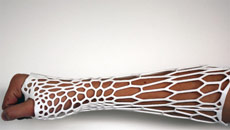Organic foods and crops have a suite of advantages over their conventional counterparts, including more antioxidants, fewer, less frequent pesticide residues, and properties that may help prevent cancer, a study suggests.
Without the synthetic chemical pesticides applied on conventional crops, organic plants tend to produce more phenols and polyphenols to defend against pest attacks and related injuries, the findings showed.
In people, phenols and polyphenols can help prevent diseases triggered or promoted by oxidative-damage like coronary heart disease, stroke and certain cancers.
Overall, organic crops had 18 to 69 percent higher concentrations of antioxidant compounds, the study said.
"This study is telling a powerful story of how organic plant-based foods are nutritionally superior and deliver bona fide health benefits," said co-author of the study Charles Benbrook, a researcher at Washington State University in the US.
The team found that organic crops have several nutritional benefits that stem from the way the crops are produced.
A plant on a conventionally managed field will typically have access to high levels of synthetic nitrogen, and will marshal the extra resources into producing sugars and starches.
As a result, the harvested portion of the plant will often contain lower concentrations of other nutrients, including health-promoting antioxidants.
The study looked at an unprecedented 343 peer-reviewed publications comparing the nutritional quality and safety of organic and conventional plant-based foods, including fruits, vegetables, and grains.
The researchers applied sophisticated meta-analysis techniques to quantify differences between organic and non-organic foods.
Pesticide residues were three to four times more likely in conventional foods than organic ones, as organic farmers are not allowed to apply toxic, synthetic pesticides.
Consumers who switch to organic fruit, vegetables, and cereals would get 20 to 40 percent more antioxidants, the researchers concluded.
The study appeared in the British Journal of Nutrition.






